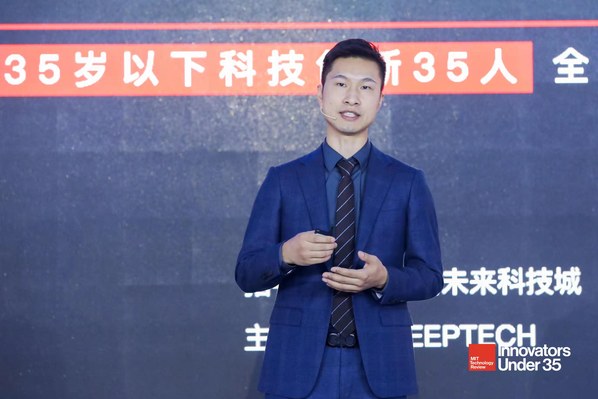Dialogue@ZJU: Dr. PAN Liqiang, honoree of the MIT Technology Review Innovators Under 35 Asia Pacific
[Message from the editor: Two ZJU faculty members were listed among the MIT Technology Review Innovators Under 35 Asia Pacific 2021. In the recent interview, Dr. PAN Liqiang, one of the honorees and a principal investigator at the Zhejiang University College of Pharmaceutical Sciences shared his research and insights into innovation.]

Q1:First of all, congratulations to you for being recognized on the 2021 MIT Technology Review Innovators Under 35 Asia Pacific List. Can you briefly introduce your research to us?
PAN:Thanks. My research focuses on exploring novel multi-functional ligand or antibody derivatives (e.g., ligand/antibody-drug conjugates, immune cell engagers) for tumor immunotherapy via precise tumor targeting and leveraging the signaling pathways of immunoreceptors. Take antibody-drug conjugates (ADC) as example, an ADC molecule comprises three main components: monoclonal antibody, cytotoxic payload and linker. Upon binding with target antigen on tumor cells, ADC can deliver cytotoxin payload into cytoplasm via receptor-mediated endocytosis, release the cytotoxic drug from ADC through lysosomal degradation to destroy DNA or inhibit cell division and eventually kill the tumor cells, serving as “biological missile”.
Q2:What do you think are the most important traits as innovators?
PAN:In my opinion, leadership, self-confidence and unconstrained exploration are three most important characteristics for innovators. Innovators usually have strong leadership which is key to success, since innovation is gradually shaped along with decision-making path taken by the leader, after receiving positive or negative feedbacks. Innovators are also highly self-confident, optimistic about what they’re doing and are eager to deliver optimistic messages to their team members, motivating them to strive for the success. Innovators are finally open to exploring different possibilities before closing in on a single option, and are never fixed on one idea without unattached exploration, which leads them successfully to exciting innovations.
Q3:What challenges do you think lie ahead? Where do you see your research going in the future?
PAN:I think as a junior principal investigator it’s challenging to create highly productive and value-based team full of passionate people.
Harnessing the power of the human immune system is steadily gaining importance for the treatment of cancer. Bispecific antibodies can simultaneously bind to two different cell surface antigens. However, most tumor targets are tumor-associated antigens which could also be expressed in normal cells. In addition, the vast majority of intracellular proteins (~90% of total protein) remain undruggable by means of antibody therapy. Therefore, we are developing novel bispecific/multi-specific antibodies, equipped with TCR or TCR-mimic antibody fragment as targeting module and co-stimulatory receptor agonist as co-activation module, for the redirecting of immune cells and reprogramming of immune cell activation, proliferation and differentiation. In the future, these novel multi-functional antibodies, capable of targeting tumor-specific intracellular protein sequence, will be translated clinically to fulfil unmet clinical needs and help more patients.
Q4:What advice do you have for young students aspiring to academics?
PAN:My advice to them is to get in touch with professors/researchers as early as they can, to join their teams and find out what they’re doing in the labs and how researches look like. After gathering enough information, I think it’s very important for them to choose scientific projects that spark their curiosity to intellectually and emotionally sustain themselves, since scientific researches are usually lifetime work. DO NOT enter the field you don’t truly like.
Be self-motivated, seize as many opportunities as you can, or create them. Academic research requires graduate students to create knowledge after scientific exploration, instead of receiving knowledge from teachers. Therefore, self-motivation is essential for young students to keep reading multi-disciplinary scientific papers and updating themselves of daily scientific progresses in the related field.
Striving to be excellent at whatever you do means being enthusiastic about your goals and take actions in order to improve yourself. “Excellence is achievable; perfection is not”. Try your best to pursue excellence at every point of your academic research and be enthusiastic about learning from mistakes!